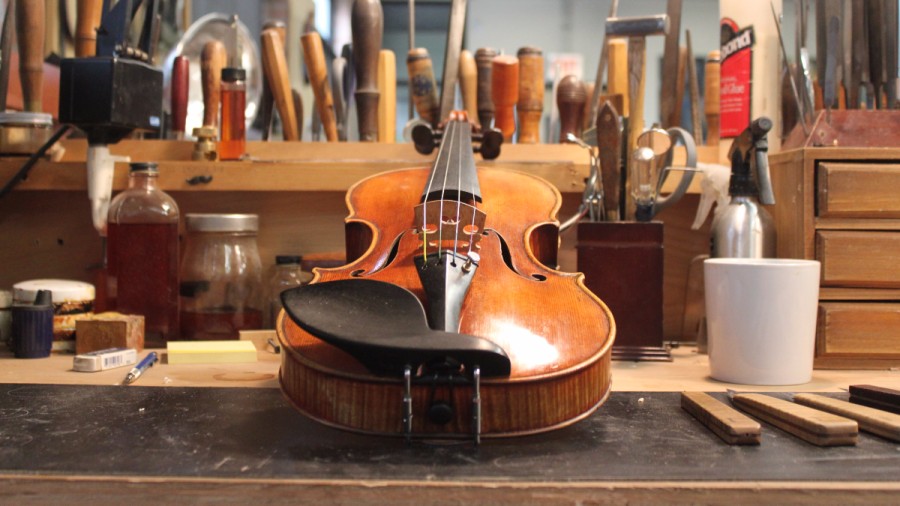Working Shift: Violin Maker
By WBEZ Staff

Working Shift: Violin Maker
By WBEZ StaffIn the latest installment of Working Shift, we talk to Paul Becker, a Chicago-based violin maker who started crafting string instruments at age 14. He now manages the family business, Carl Becker & Son, which goes back four generations.
Morning Shift talked with Paul Becker about the art of violin making, and why his work will live long after he’s gone.
Q: How did you get into the family business?
A: When I was 13 I came into the shop, and I wasn’t allowed in the shop most of the time because they wanted absolute silence, and I said “someday I outta work in this shop.” The next day I had my own bench. The next year I spent making a form. The second year I spent learning how to carve. Then I spent the third year learning how to do archings and the scroll.
At first it was very tough because my father was known as the best violin maker in the world by his peers. I had to come up to that standard. It was very hard to start with that very high quality.
Q: What’s your favorite part of the process in making a violin?
A: Oh, it’s absolutely when a musician picks up my violin and falls in love with it themselves. After it’s done. The varnishing stage when the beauty comes out. And then the study of the acoustics. It’s never ending. We change our instruments every year to achieve a little more depth or a little more brilliance or a little more playability.
Q: When you use wood from Italy and Bosnia for your violins, do you go there yourself?
A: Absolutely. We would get calls from the wood dealers because they wanted our family to use their wood. When dad would go to Germany, Peter Prier from one of the violin making schools in Salt Lake City would follow him over there. Dad would go through all the wood and pick out what he wanted. He’d have his pile of rejects and the pile he would keep. He would spend four or five days going through this wood looking for perfectly spaced grains, hard grain at the top that produces the right sound, the proper weight to the wood, and looking for flaws to eliminate. Peter Prier would then buy dad’s pile of rejects for the school and he’d only have to spend one day there.
Q: So you’re a violin maker but not a violinist?
A: No, when I was young I started to learn how to play violin when I was six or seven years old. I really hated it. I thought it was a sissy thing to do at the time. I was very much into fishing, football, and baseball and didn’t want to do it at all. I regret that very much.
Q: You’ve been making violins since you were 14, what has it taught you?
A: It has taught me patience. It’s taught me the scientific approach to everything I do in life. I’m often accused of making violin references to every decision I make. In order to make a violin you have to be chemist, an engineer, an artist, you have to have a fantastic ear. One part of my life is to make and the other part is to repair and adjust and work with the best musicians out there.


